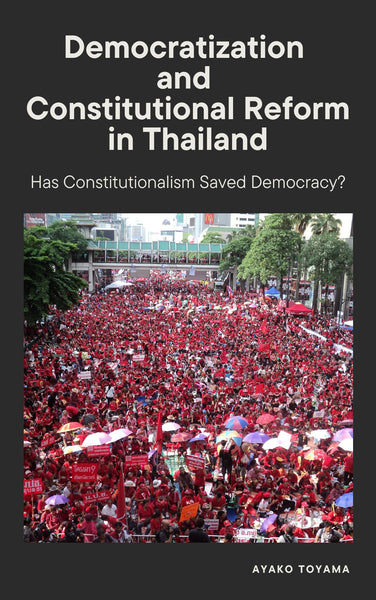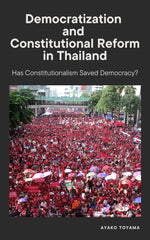Democratization and Constitutional Reform in Thailand
Many In Stock
This book examines the phenomenon of the "judicialization of politics," which has attracted attention as one of the causes of the retreat of Thai democracy, focusing on the May 1992 bloodshed, the political reform movement, and the discussions during the drafting of the 1997 and 2007 constitutions. By carefully examining interviews with those involved and the minutes of the drafting of the constitutions, the author clarified the differences between Thai constitutionalism and Western constitutionalism, and analyzed the causes of the "judicialization of politics" and the "retreat of democracy" in Thailand.
While many existing studies on the judicialization of Thai politics are critical of the drafters of the Constitution, this book does not focus solely on criticism, but also examines the reasons why they enacted the Constitution by directly interviewing the drafters and carefully examining the minutes of the Constitutional Assembly, and examines the limits of the King's ability to arbitrate due to the intensification and scale of the mass demonstrations since the 1990s. The book is unique in that it carefully depicts the "sense of crisis" they felt toward the limits of the King's ability to arbitrate due to the intensification and scale of mass demonstrations since the 1990s.
About Editors and Authors
TOYAMA Ayako is an associate professor of Institute of Humanities and Social Sciences, Tsukuba University.
Table of contents
Explanatory notes
Preface
Introduction: The Academic Significance of Questioning Democratization in Thailand
Part I: Constitutional Reform since the 1990s –Opportunity and Intent
Chapter 1: Two Constitutions: The 1997 Constitution and the 2007 Constitution
Chapter 2: Rethinking the Political Reform Movement: What is Thai “Constitutionalism”?
Part II: Constitutional Reform and Popular Power
Chapter 3: Constitutional Reform and Administrative Power: The Political Meaning of ‘State Policy Fundamental Directive Principles’ in the Thai Constitution
Chapter 4: Constitutional Reform and Law-Making Power: Suppressing the power of law makers: an analysis of electoral system reforms
Part III: Constitutional Reform and Non-Private Elected Powers
Chapter 5: Constitutional Reform and the Regulation of Corruption: Creating Corruption: Legal Provisions as Political Tactic
Chapter 6: Constitutional Reform and Judicial Power: Constitutional Court and Independent Agencies Operating Under Constitutional Provision: ‘Package’ System Problem
Chapter 7: Constitutional Reforms and the Law-Making Power of Non-elected Officials: The 2007 Constitution and a New Mission for the Senate
Final Chapter: Democratization and Constitutional Reform in Thailand
Reference

